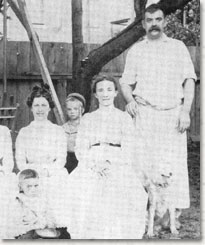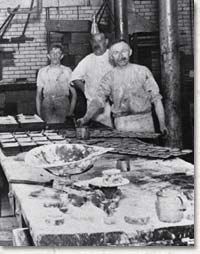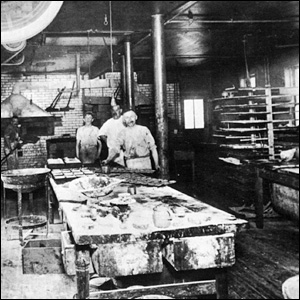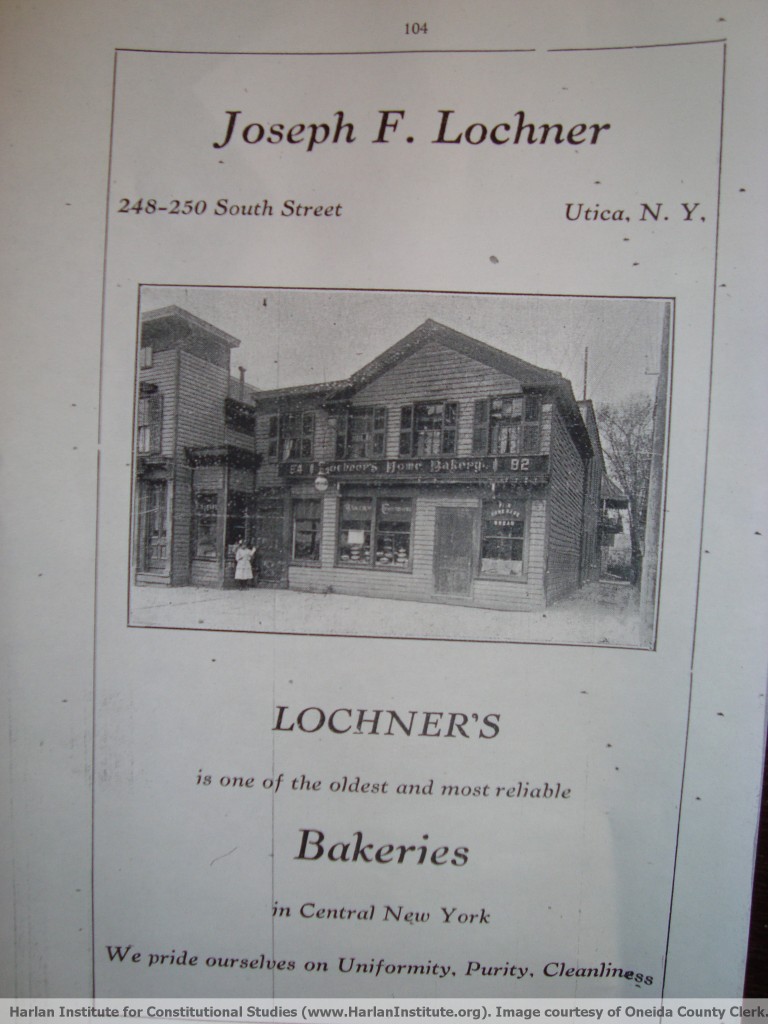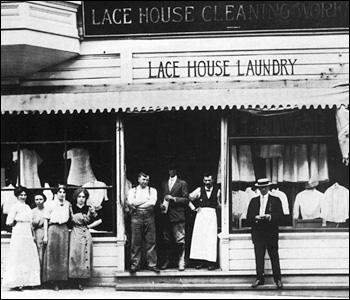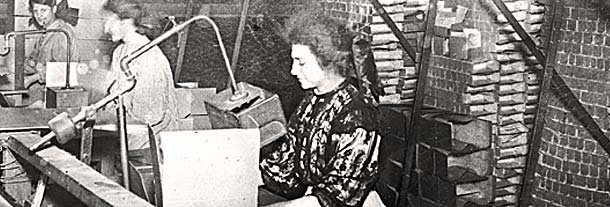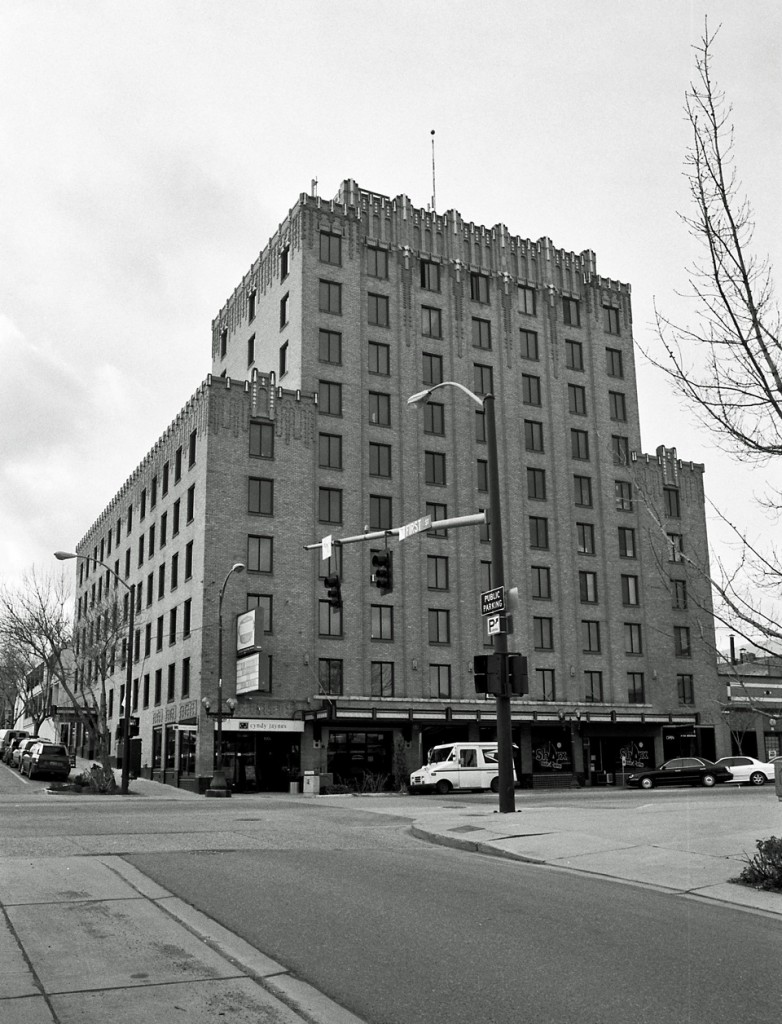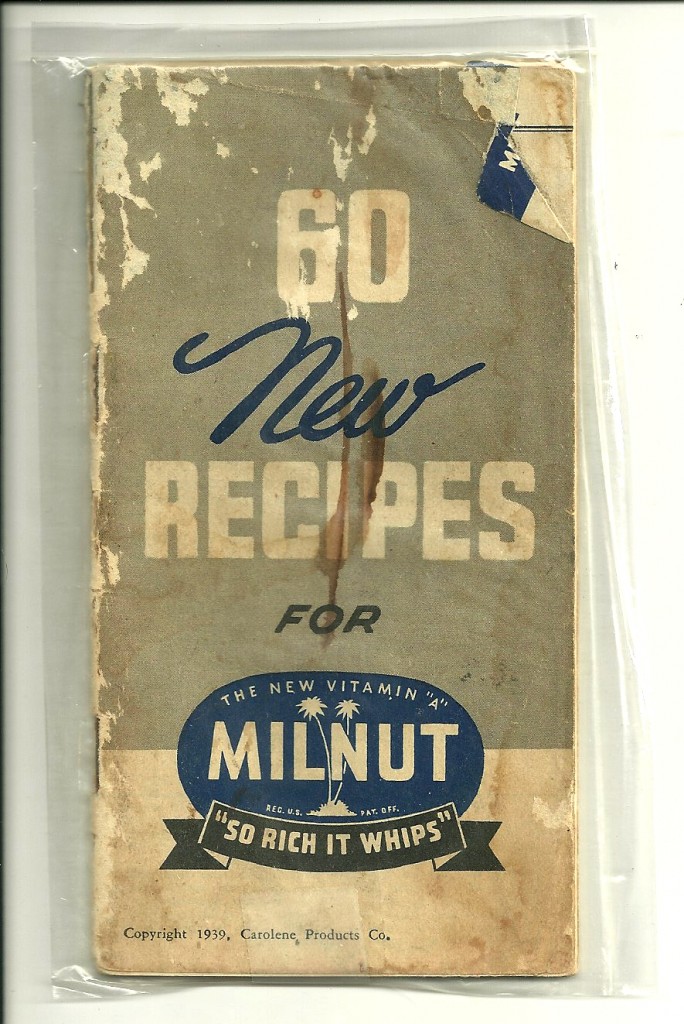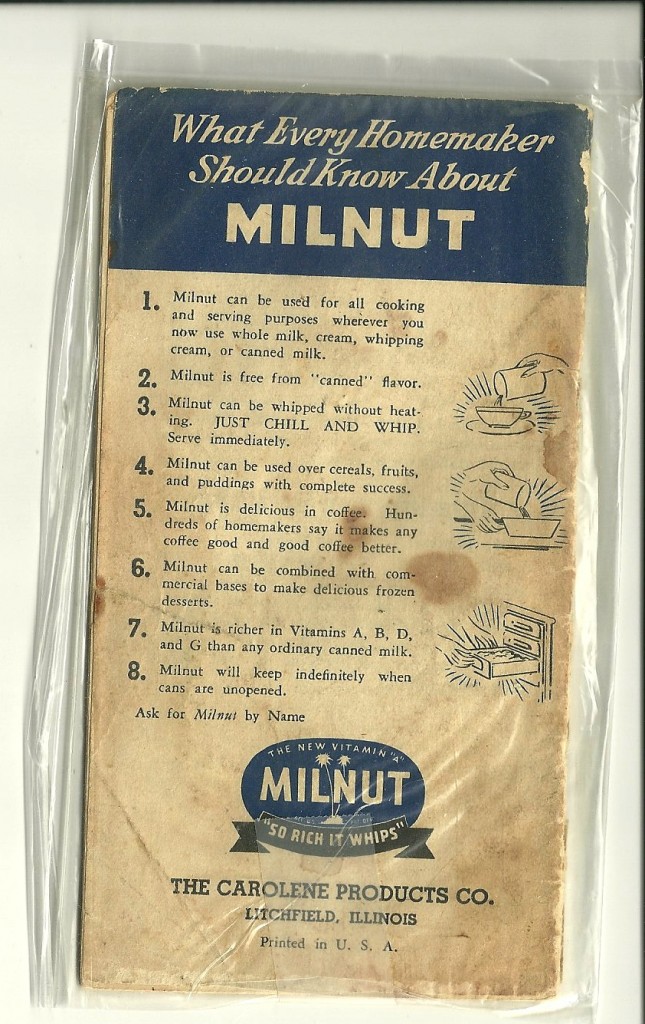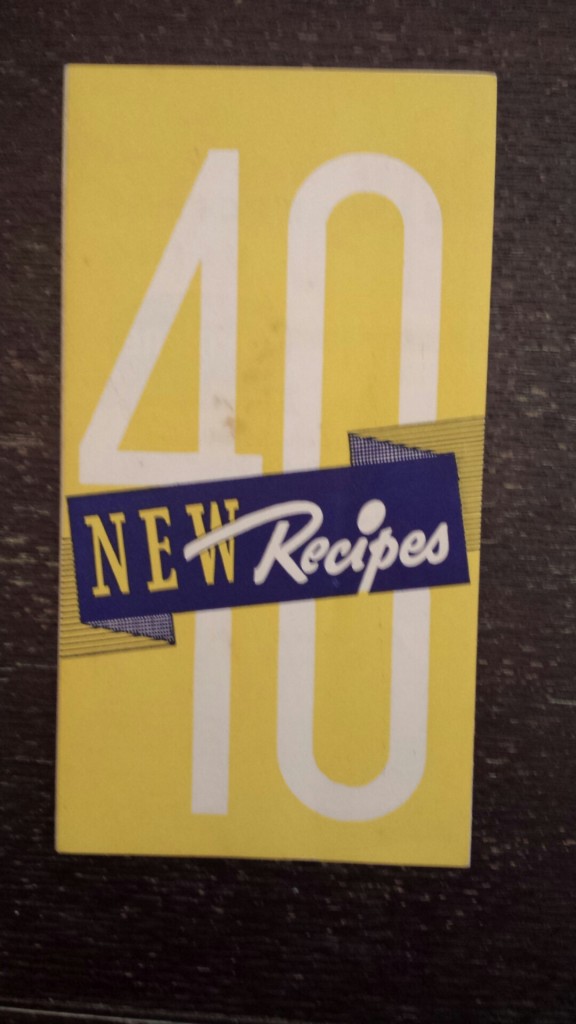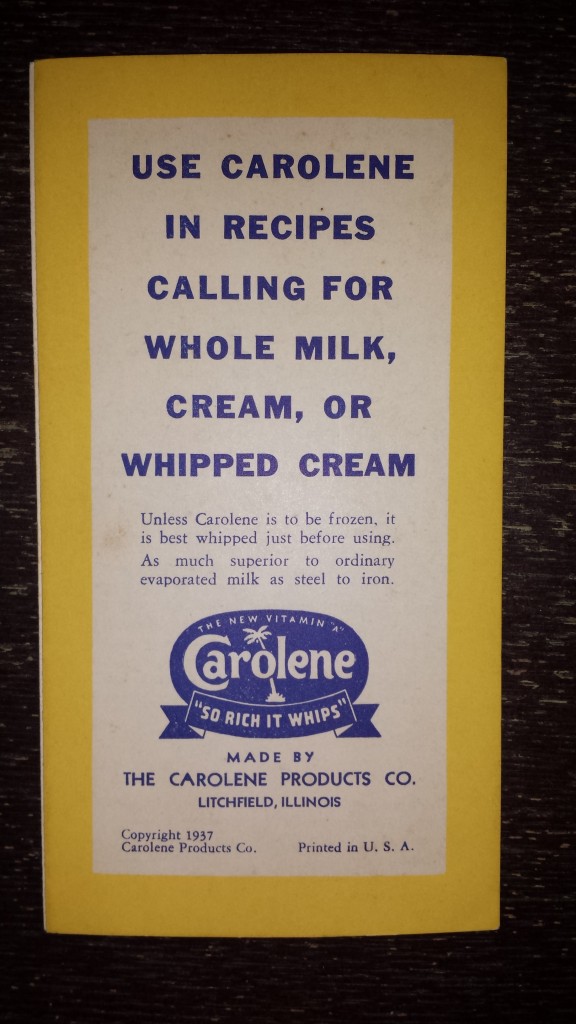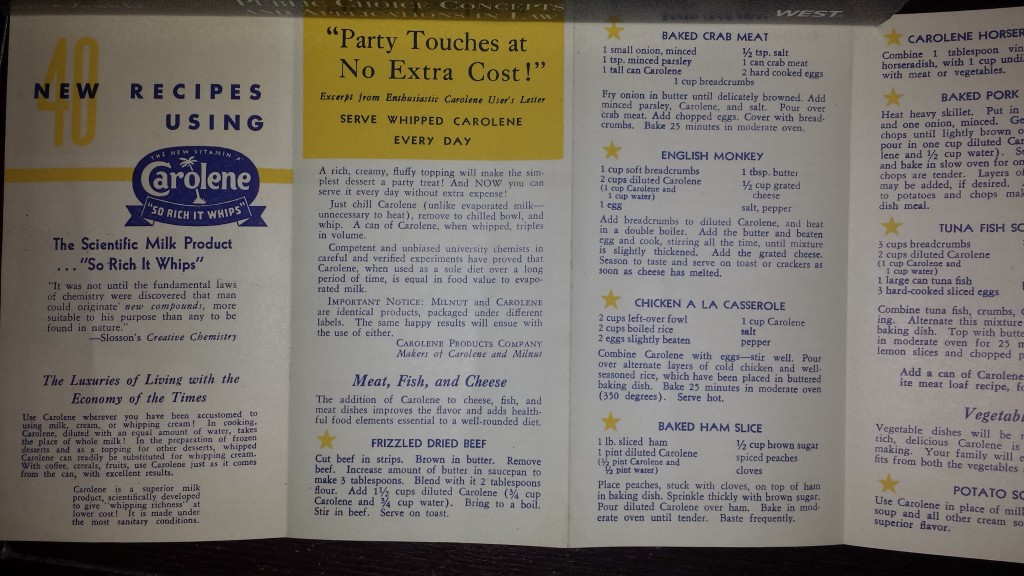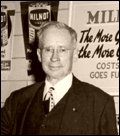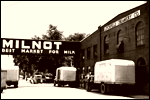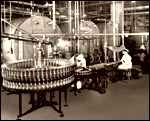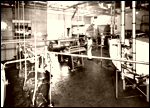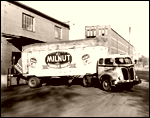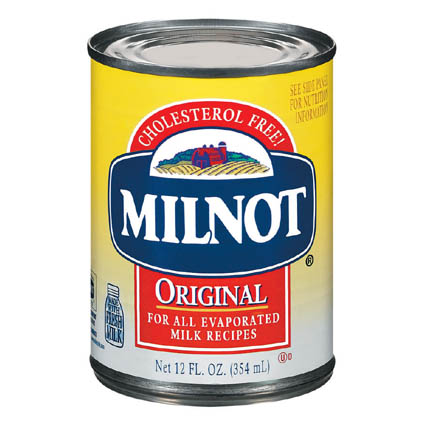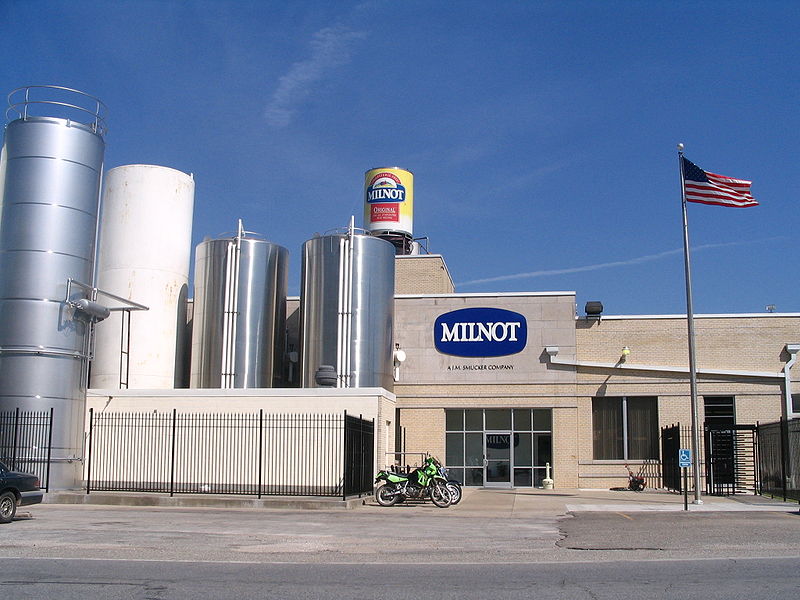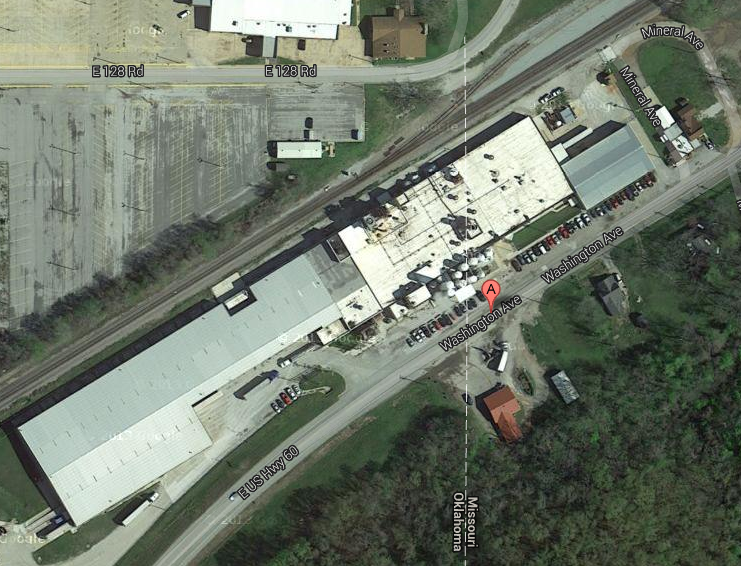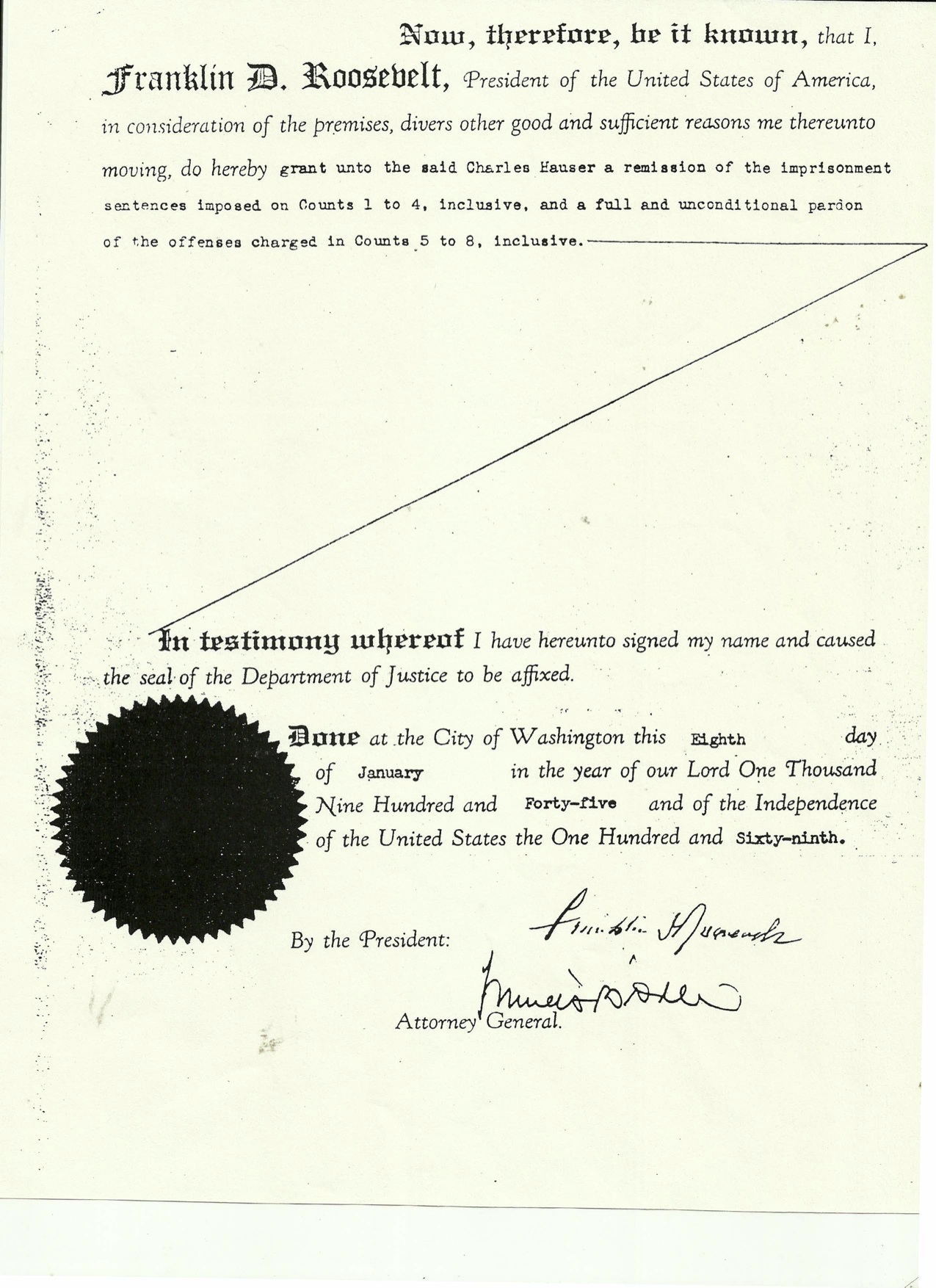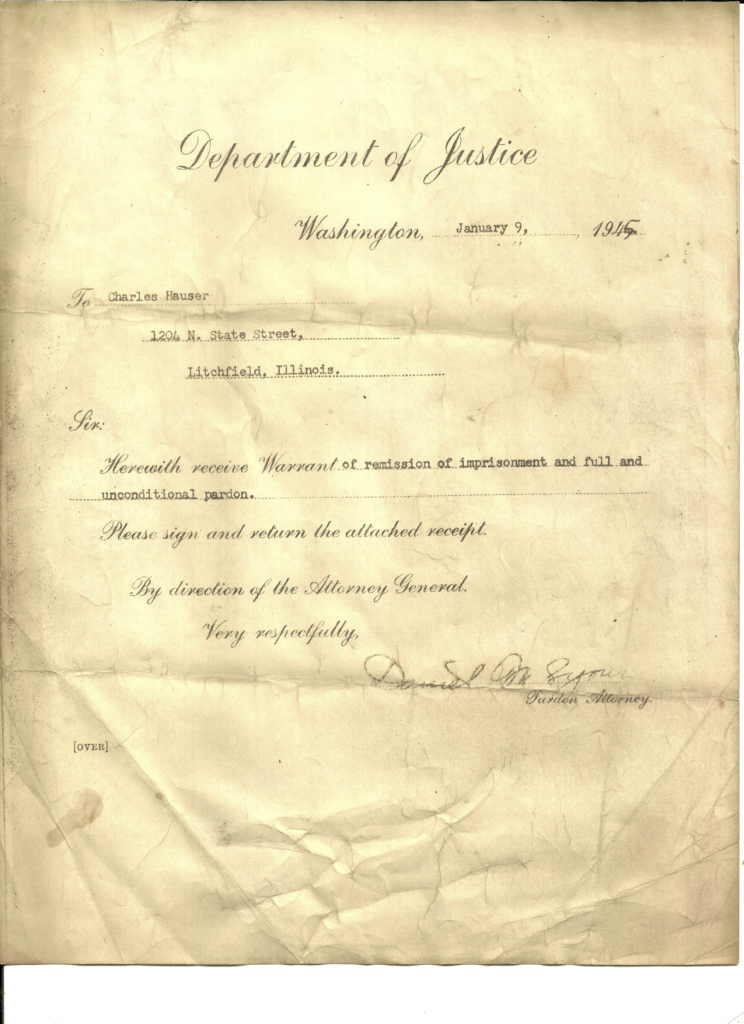The lecture notes are here.
Substantive Due Process and Economic Liberty
- Due Process of Law (1443-1444).
- Due Process and Separation of Powers (1444-1446).
- Substantive due process (1463-1464).
- Lochner v. New York (1465-1473).
- West Coast Hotel v. Parrish (1473-1476).
- Rehabilitating Lochner, by David Bernstein
Lochner v. New York
Standing on the right is Joseph Lochner.
Here are photographs of Lochner’s bakery in Utica, New York.
Here is the cover of a recent book aimed at rehabilitating Lochner, which depicts Justice Rufus Pekham, author of the majority opinion, knocking out Justice Oliver Wendell Holmes, author of the famous dissent.
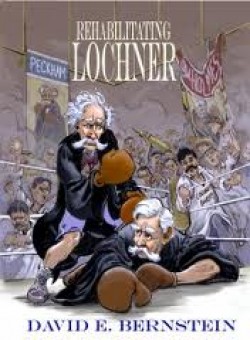
Through sleuthing at the Oneida County Clerk’s Office, I discovered this advertisement for Lochner’s bakery. According to the ad, Lochner’s Home Bakery “is one of the oldest and most reliable bakeries in Central New York. We pride ourself on Uniformity, Purity, Cleanliness.”
Muller v. Oregon
Here is the Lace House Laundry from Muller v. Oregon.
Here are workers inside the Lace House Laundry, courtesy of the Oregon Historical Society.
West Coast Hotel v. Parish
This is the West Coast Hotel is Wenatchee, Washington.
United States v. Carolene Products
First, here is Carolene Product’s famous footnote four:
There may be narrower scope for operation of the presumption of constitutionality when legislation appears on its face to be within a specific prohibition of the Constitution, such as those of the first ten amendments, which are deemed equally specific when held to be embraced within the Fourteenth. See Stromberg v. California, 283 U.S. 359, 369-370; Lovell v. Griffin, 303 U.S. 444, 452.
It is unnecessary to consider now whether legislation which restricts those political processes which can ordinarily be expected to bring about repeal of undesirable legislation, is to be subjected to more exacting judicial scrutiny under the general prohibitions of the Fourteenth Amendment than are most other types of legislation. On restrictions upon the right to vote, see Nixon v. Herndon, 273 U.S. 536;Nixon v. Condon, 286 U.S. 73; on restraints upon the dissemination of information, see Near v.Minnesota ex rel. Olson, 283 U.S. 697, 713-714, 718-720, 722; Grosjean v. American Press Co., 297 U.S. 233; Lovell v. Griffin, supra; on interferences with political organizations, see Stromberg v.California, supra, 369; Fiske v. Kansas, 274 U.S. 380; Whitney v. California, 274 U.S. 357, 373-378;Herndon v. Lowry, 301 U.S. 242; and see Holmes, J., in Gitlow v. New York, 268 U.S. 652, 673; as to prohibition of peaceable assembly, see De Jonge v. Oregon, 299 U.S. 353, 365.
Nor need we enquire whether similar considerations enter into the review of statutes directed at particular religious, Pierce v. Society of Sisters, 268 U.S. 510, or national, Meyer v. Nebraska, 262 U.S. 390; Bartels v. Iowa, 262 U.S. 404; Farrington v. Tokushige, 273 U.S. 484, or racial minorities,Nixon v. Herndon, supra; Nixon v. Condon, supra: whether prejudice against discrete and insular minorities may be a special condition, which tends seriously to curtail the operation of those political processes ordinarily to be relied upon to protect minorities, and which may call for a correspondingly more searching judicial inquiry. Compare McCulloch v. Maryland, 4 Wheat. 316, 428; South Carolinav. Barnwell Bros., 303 U.S. 177, 184, n. 2, and cases cited.
I have collected a fortune of information about Carolene Products, Charles Hauser (the President), and his return trip to the Supreme Court which resulted in an affirmed conviction, and a pardon by President Roosevelt. Three decades later, a district court in Illinois found the federal Filled Milk Act Unconstitutional.
As a result of United States v. Carolene Products (1938), the Carolene Products company changed the name of their product from “Carolene” to “Milnut” at some point in 1938. I previously acquired a Carolene Products Cookbook from 1939, labelled as “Milnut.”
Now, thanks to a successful eBay bid, I am the proud owner of a Carolene Products cookbook from 1937 (before the Supreme Court case!). It is labelled as “Carolene” with the same logo.
Note how it is called a “Scientific Milk Product.” After 1938, the advertisements did not call it “Milk” to avoid problems under the Federal, and state Filled Milk Acts.
Who want’s some frizzled dried beef or baked ham slice?
As well, here is the history of the Carolene Products company from MilnotMilk.com, with some interesting photos.
The Seneca plant that was built right on the border with Oklahoma, in a means to work around (literally) the Filled Milk Act. I have more details on the Seneca plant here. The plant is still in operation today, operated by the Sumker’s company (you can order Milnot online! – I have a case).
Here is a copy of FDR’s pardon of Charles Hauser, President of the Carolene Products company.
Here is a copy of the remission of imprisonment, which I received from Hauser’s granddaugther. Note that the year 1944 is printed, and someone scribbled over it 1945.
